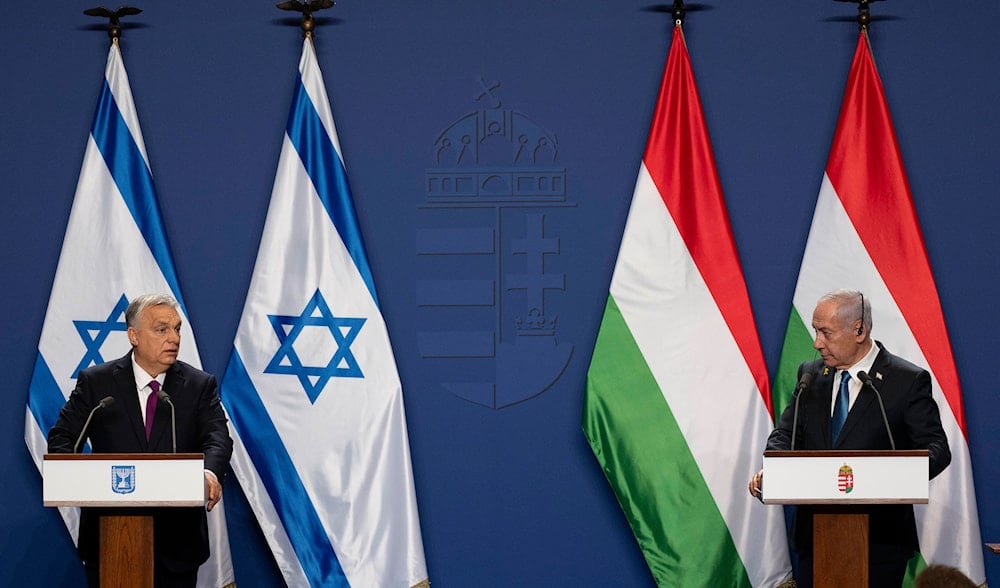ICC refers Hungary to oversight body over failure to arrest Netanyahu
The International Criminal Court has referred Hungary to its oversight body for failing to arrest Netanyahu during his April visit to Budapest, defying an ICC arrest warrant related to Israeli war crimes in Gaza.
-

Hungarian Prime Minister Viktor Orban, left, speaks during a press statement next to Israeli Prime Minister Benjamin Netanyahu, right, at the Carmelite Monastery in the Buda Castle in Budapest, Hungary, Thursday, April 3, 2025. (AP Photo/Denes Erdos)
The International Criminal Court (ICC) has referred Hungary to its oversight body, the Assembly of States Parties, after Hungarian authorities failed to arrest Israeli Prime Minister Benjamin Netanyahu during his April 2025 visit to Budapest.
Netanyahu, who was warmly received by Hungarian Prime Minister Viktor Orbán, visited despite an active ICC arrest warrant accusing him of war crimes and crimes against humanity. The charges, tied to the Israeli war on Gaza that started after October 7, 2023, include the use of starvation as a method of warfare and intentional attacks on civilians.
The ICC warrant, issued in November 2024, holds Netanyahu criminally responsible for policies that led to the humanitarian catastrophe in Gaza. Former Israeli Security Minister Yoav Gallant faces similar charges. Despite the severity of the accusations, Hungary chose not to act on its legal obligations as a signatory to the Rome Statute.
A panel of ICC judges found Hungary’s failure to comply as “severely undermining the Court’s ability to carry out its mandate.” The court dismissed Budapest’s argument that its parliament had never integrated the Rome Statute into domestic law, affirming that the responsibility for legal enforcement lies squarely with Hungary.
ICC to address Hungary's conduct
Orban, seen as the European Union’s most vocal critic of liberal institutions, used Netanyahu’s visit to announce Hungary’s intention to withdraw from the ICC, calling the court a “political” entity. Netanyahu praised Orban’s stance as “bold and principled,” deepening the two leaders’ ideological and diplomatic alignment.
The ICC has no police force and depends on its 125 member states to carry out arrest warrants. This case marks the third time in a year that the court has taken action against member states for non-compliance, following previous cases involving Italy and Mongolia.
The Assembly of States Parties, the ICC’s oversight mechanism, is expected to address Hungary’s conduct during its annual December meeting. Although it lacks strong enforcement tools, the referral serves as a public reprimand and a call for collective accountability.
The situation underscores the challenges the ICC faces when confronting geopolitical interests, especially when perpetrators of international crimes enjoy high-level political impunity.

 2 Min Read
2 Min Read








